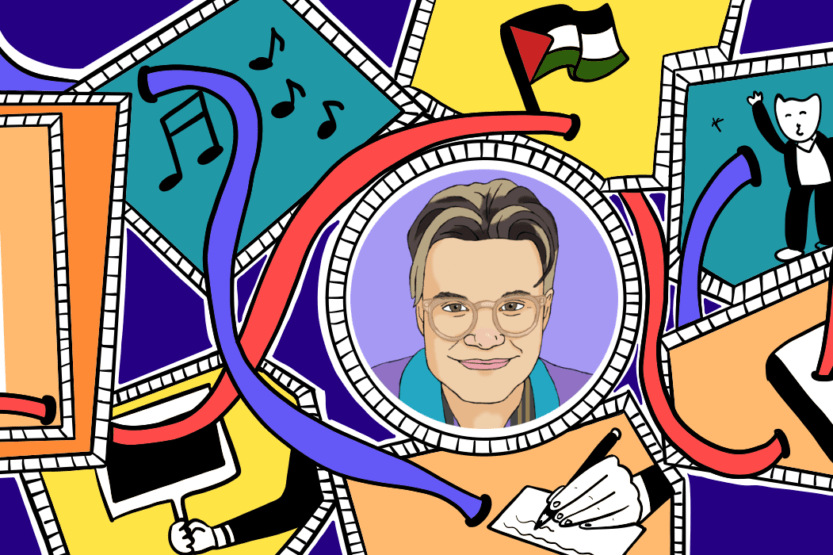reflections
Why we must politicise neurodiversity by Jodie Hare

This week’s piece discusses neurodiversity, the concept that all humans vary in terms of our cognitive ability, and how this movement should be more actively political.
We should all be challenging the idea that there is one ‘normal’ way for our brains to function, but Jodie Hare goes further by emphasising the need to politicise this, beyond just normalising it, to make a material difference in our world.
Underpinning Jodie’s analysis is the need for neurodiversity to not become merely another buzzword, used in corporate-speak for superficial purposes, but a liberating force to create a less unequal society. This is how we can match and link it with other ongoing movements for social justice.
i think (different), therefore i am (different)?
This piece made me think about how surface-level we can be when it comes to discussing people that think differently from what is considered neurotypical. Jodie makes a great point that although the term neurodivergent has more visibility than ever, and people are more aware of Autism and ADHD generally, the understanding of it is still largely lacking.
This is played out in the UK with current Conservative leader Kemi Badenoch distributing a campaign pamphlet which incorrectly labelled autism as a mental health condition and, bizarrely, claimed that autistic people receive ‘economic privileges and protections’ in Britain. Hmm.
Far be it from me to suggest that the Tories are chatting shit, but the autistic population regularly face more barriers and prejudices to their lives than neurotypical people: for instance, only 3 in 10 autistic people of working age in the UK are in employment, way below the average work rate. This signals a social failure to accommodate and support autistic people, rather the opposite of a protective and nurturing state for neurodivergent people to thrive.
This lack of accessibility is mirrored in disability rights. As a visually impaired colleague once put it to me: it’s not that we’re incompatible with the world, it’s this world which is disabling us.
workin’ at the greenwash
Every movement to liberate people – from civil rights to climate justice – gets co-opted by those in power, and the movement for neurodivergent acceptance and inclusion is in danger of faring the same way.
As Ayesha Khan writes in the Cosmic Anarchy substack, “now it is time for the “hot trend” of increasing awareness about neurodiversity to be co-opted by capitalism because “neurodivergent” is an expanding micro-identity that opens up a new consumer & worker base for companies to exploit.”
It’s something we have to be alert for. Khan discusses how neurodivergent people are starting to be harnessed as a commodity – an “untapped pool” for large companies to make profit. As soon as a bank, weapons manufacturer or the police bring out their ‘neurodivergent pride’ campaign, it’s so over.
neurotopia
Jodie ends her piece with a call to focus on grassroots neurodiversity activism. She makes a connection between an ableist society and the over-representation of neurodivergent people in the prison system – again, the barriers to some people leading a ‘normal’ life result in more systemic injustice. This is why the fight for abolition is crucial, redirecting police funds to preventive and supportive services (housing, mental health care, community-based crisis intervention) can save lives and livelihoods.
Harnessing the power of neurodiversity, celebrating our differences for collective freedom, can become a truly revolutionary act, but, being relatively new and in danger of misunderstanding and appropriation, it requires more solidarity and visibility.
This article is a welcome step guiding us towards a world with less barriers, organised along accessible and socially just lines, not just created as a box-ticking exercise or profit-making venture.
~ Tommy
smirk of the week 😏

shado in focus
In this shado in focus episode, inmate Tony Cobb describes in detail the extreme heat and other human rights violations happening in Florida’s prisons. A sobering listen, it exposes the inhumane conditions that incarcerated people are in, leading to an issue not of comfort, but of “life and death.”
one thing to groove to:
Jeshi – BAD PARTS ARE MY FAVOURITE
The East London rapper has returned to the scene, following up his standout debut album Universal Credit, with a charged-up record Airbag Woke Me Up. This is the first track on the LP, and he comes out swingin’.
I love this song because its breakbeat style is very UK-garage and the production also reminiscent of The Prodigy. The pain and angsty lyrics over the energetic beat give it an urgency and addictive quality – “What’s life when you don’t dance with danger?”
Play loud.
one thing to listen to:
…. Subscribe HERE for full free post.

